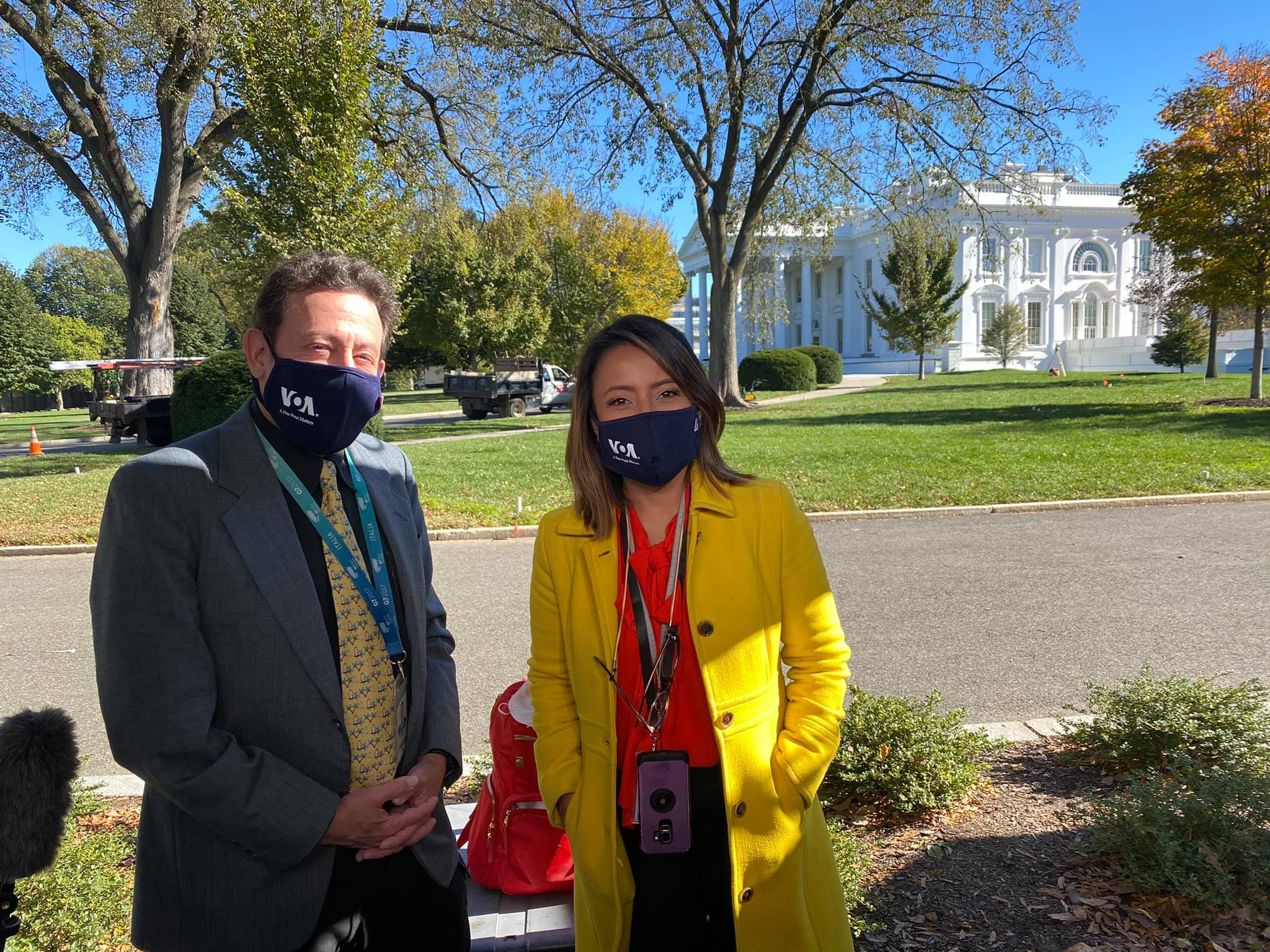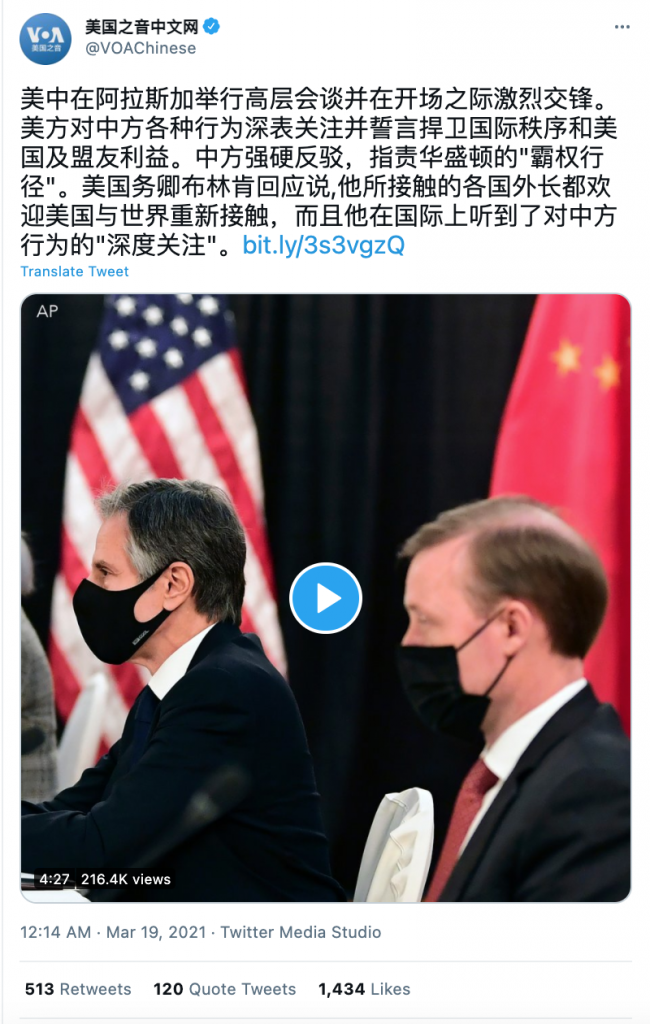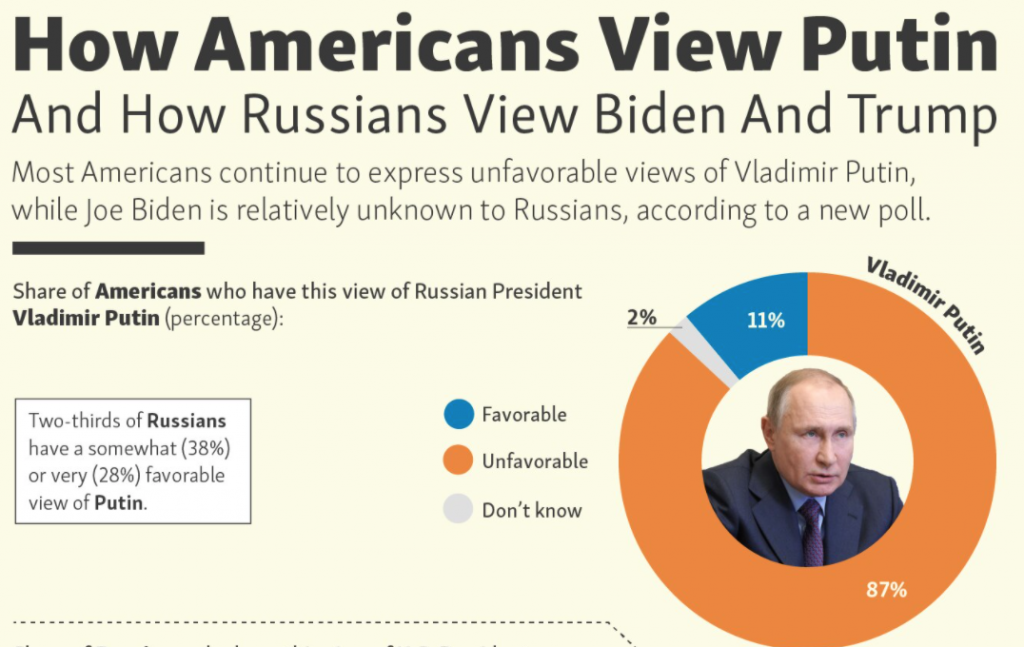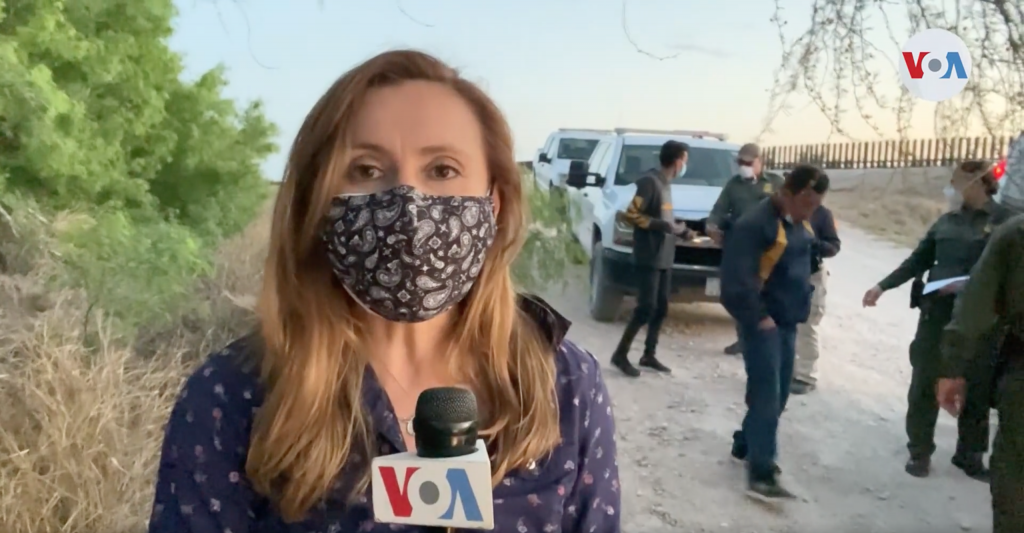Biden’s First 100 Days: Turning to USAGM for unbiased coverage

VOA White House Bureau Chief Steve Herman and VOA White House Senior Correspondent Patsy Widakuswara provide coverage of the U.S. president for VOA and its sister networks. (Courtesy photo)
As Biden marks 100 days in office, we highlight key coverage by our networks that has helped explain the transfer of power and subsequent changes in U.S. policy, as well as what those changes mean for people around the world. In many countries where press is controlled, audiences cannot get accurate or uncensored information about what is happening in the United States. That’s why audiences have been turning to USAGM networks for a better understanding of President Biden’s promises to rebuild the U.S.’s democratic alliances and champion America’s values and human rights, as well as for an understanding of the discourse on his proposals.
China
VOA Mandarin reporting on the first face-to-face cabinet-level meeting between Biden Administration and China generated substantial audience engagement. U.S. officials cited fundamental differences on issues like the Uyghurs and Hong Kong, while pledging cooperation on others, including North Korea. The Chinese side ruled out any compromise on Beijing’s “core interests.” A VOA video clip subtitled in Mandarin on the meeting generated over 417K total views on social media, including 208K views on Twitter.

When the U.S., E.U., Canada, and Britain announced sanctions on China over the abuse of Uyghurs in March, some experts told VOA the move was a step forward for Biden’s ally-centered China policy. Radio Free Asia has explained how the outgoing Trump administration had designated the abuses against Uyghurs as state-sponsored genocide, a label that the Biden Administration has embraced, working with global allies on measures to hold the Chinese government accountable.
VOA also talked to three U.S. members of Congress. Representative Scott Perry, a Republican from Pennsylvania, told VOA that he thinks the U.S. should reset the relationship with China. Another VOA report on the future of Sino-U.S. ties generated 65,000 page views and video highlights of the story got 145,000 social media engagements.
Russia
Radio Free Europe/Radio Liberty reported early in Biden’s tenure that the president had taken a different tone in his approach to Russia. A test that RFE/RL explained was the two leaders’ first phone call together in which Biden raised concerns about Russia’s treatment of jailed Kremlin critic Aleksei Navalny and its continued occupation of Crimea. RFE/RL also looked at the official “readouts” of the two leaders’ January 26 telephone conversation and showed how vastly the statements differed and why.
When President Biden referred to Vladimir Putin as a “killer” in a March network televised interview, both RFE/RL and VOA provided context and explained how Putin responded to the criticism with a schoolyard retort, a tactic he has used before. Hours after Biden’s were broadcast, the Foreign Ministry said it was recalling Russia’s ambassador to Washington, Anatoly Antonov, to Moscow for consultations.
RFE/RL also looked at how Americans view Putin and Russians view Biden and Trump. Check out this infographic for the surprising results.

Iran
In his first interview with VOA since taking office, U.S. Special Envoy for Iran Robert Malley in March talked about the U.S.-Iran relationship. Regarding the JCPOA, Malley said the agreement is fragile and can be strengthened: “We will press Iran and try to convince Iran that it’s in their interest as well to get a follow-on deal.” Malley also said Iran’s proxies’ attacks on U.S. troops in Iraq and elsewhere do not help the climate: “The U.S. will respond as it has responded and will continue to respond.” Audience engagement totaled 614,293.
Viewers of the Middle East Broadcasting Networks’ Alhurra TV learned that Biden said the U.S. will not lift any sanctions against Iran until that country stops enriching uranium.
VOA Persian Service supplemented its live programming of Biden’s first major foreign policy speech with coverage of Secretary of State Anthony Blinken’s plans to consult with allies and Congress before negotiating with Iran on a nuclear deal. VOA Persian also obtained an exclusive interview with Iranian dissidents who sent a letter to the U.S. president, urging him to maintain maximum pressure on Iran. Total audience engagement surpassed 2.23 million.
In April, VOA Persian reported on the renewed U.S. -Iran nuclear negotiations with in-depth coverage and analysis by experts and VOA Persian reporters in the field. In an exclusive interview, Mikhail Ulyanov, the Russian representative in the talks, told VOA Persian he is optimistic. “I believe we’ll make some progress, and we are seeing some signals,” he said. However, nuclear expert Mehran Mostafavi said timing is one of many obstacles. “I believe until the upcoming elections in Iran, there will be nothing serious coming out of these talks.” The total audience engagement surpassed 1.8 million.
Immigration Policy
Audiences also turned to USAGM for a greater understanding of the Biden administration’s immigration policy. In an exclusive interview with VOA, Roberta Jacobson, at the time the new White House coordinator of border affairs, explained that the U.S. will seek to implement programs so that people who live in Central America and want to request asylum or to immigrate to the U.S. can do so from their own countries. The interview was picked up by major media in Central America, including Azteca Television in Mexico, Channel 6 in El Salvador, Azteca Honduras, and radio stations in the region. On the VOA Digital channels, the video had more than 300K views on Facebook.
A VOA correspondent in Houston explained how the White House warns undocumented immigrants to stop coming illegally to the U.S. and DHS Secretary Alejandro Mayorkas assures Republican lawmakers the southern border is “not open,” despite the challenge dealing with the arrival of unaccompanied minors who are currently being housed in a convention center in Texas.
VOA Spanish Service’s “Foro Interamericano,” a 30-minute television news analysis program, addressed the challenges the U.S. faces in the Northern Triangle, generated 56K+ views on YouTube and 1.3 K+ views on Facebook.
Thirty-three affiliates picked up a VOA Indonesia TV package on the Indonesian diaspora’s reaction to Biden’s immigration plan, which included an interview with an undocumented Indonesian immigrant who moved between jobs to avoid getting caught.
The Office of Cuba Broadcasting’s Radio Televisión Martí examined the administration’s immigration proposal when it reached Congress, looking at the expectations the proposal generates.

In April, VOA Spanish reporter Celia Mendoza spoke with some of the migrants on the U.S. southern border, minutes after being detained by border patrol agents. The video received more than 1 million views on Facebook. VOA Spanish Service coverage has also included the view of U.S. lawmakers who have traveled to the region and the view of a landowner who is afraid of encountering drug traffickers due to the increase in immigrant crossings.
